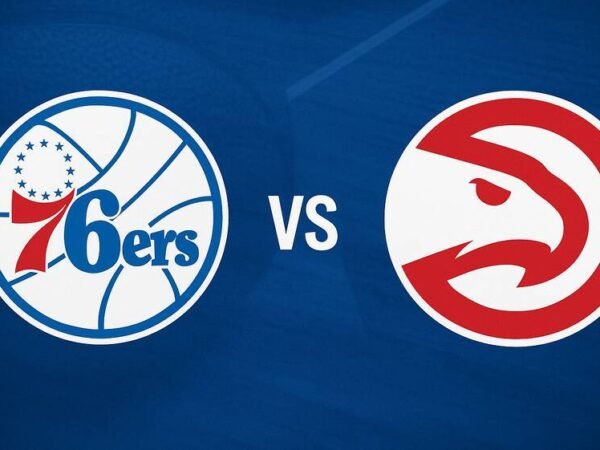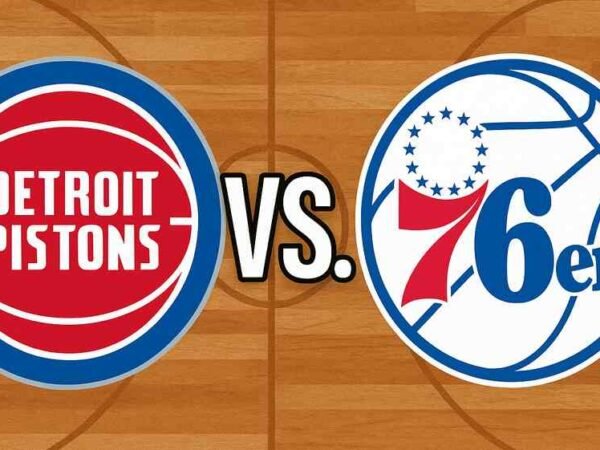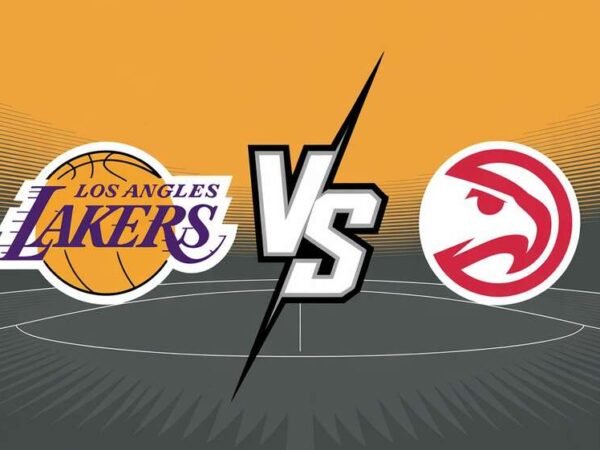The Phoenix Suns and Los Angeles Lakers have long been central to some of the NBA’s most thrilling encounters. Their recent matchup lived up to the hype, showcasing not just the star power of both teams but also the strategic depth and individual brilliance that has made this rivalry so compelling over the years. This article delves into the player stats from this electrifying game, analyzing the performances that defined the outcome and the broader implications for both teams as they navigate a competitive season.
Key Player Performances: Phoenix Suns
Kevin Durant’s Scoring Efficiency and Clutch Moments
Kevin Durant remains a central figure in the Suns’ offensive arsenal. In this game, Durant’s scoring was both efficient and timely. He shot over 50% from the field, including an impressive display from beyond the arc, where he connected on multiple three-pointers that kept the Suns within striking distance throughout the game. His ability to score from anywhere on the court makes him a constant threat, and in the fourth quarter, Durant took over when it mattered most, delivering key baskets that gave the Suns a fighting chance.
Durant’s performance wasn’t just about scoring, however. His leadership on the floor, particularly in high-pressure situations, provided the Suns with the composure needed to execute plays effectively. His basketball IQ was displayed as he navigated double-teams, found open teammates, and managed the clock with veteran savvy. These aspects of Durant’s game, combined with his scoring prowess, make him one of the most complete players in the league and a vital component of the Suns’ success.
Devin Booker’s Playmaking and Shooting Stats
Devin Booker is often the heartbeat of the Suns’ offense, and in this matchup, he demonstrated why he is considered one of the premier shooting guards in the NBA. Booker’s shooting stats were exceptional, as he maintained a high field goal percentage, including an impressive mid-range game that consistently punished the Lakers’ defense. His ability to create his shot off the dribble made it difficult for the Lakers to contain him, leading to several scoring runs that kept the Suns competitive.
Booker’s playmaking was equally impressive. Despite being a primary scorer, he dished out numerous assists, showing his evolution as a facilitator. His court vision allowed him to find open shooters and create opportunities for his teammates, particularly in transition. Booker’s ability to balance scoring with playmaking adds a dynamic element to the Suns’ offense, making them a difficult team to defend against.
Deandre Ayton’s Impact on Rebounds and Defense
Deandre Ayton’s presence in the paint was a significant factor in this game. His ability to control the boards, both offensively and defensively, gave the Suns multiple second-chance opportunities while limiting the Lakers’ scoring options. Ayton’s rebounding stats were among the best on the court, with double-digit rebounds that included several vital offensive boards that extended crucial possessions.
Defensively, Ayton was a force. His shot-blocking and ability to alter shots in the paint made it difficult for the Lakers to score inside, forcing them to rely more on their perimeter game. Ayton’s defensive performance was a key reason why the Suns kept the game close, as his ability to protect the rim and anchor the defense provided a strong foundation for the Suns throughout the match.
Key Player Performances: Los Angeles Lakers
LeBron James’ All-Around Contribution
LeBron James once again demonstrated why he is regarded as one of the greatest players in the NBA’s history. In this matchup, LeBron’s all-around contribution was pivotal. He led the Lakers in scoring, but his impact was felt with rebounds, assists, and defensive plays that kept the Lakers ahead. LeBron’s ability to control the tempo of the game, whether by pushing the pace in transition or slowing it down in half-court sets, was instrumental in the Lakers’ success.
LeBron’s passing was particularly noteworthy. He consistently found his teammates in advantageous positions, racking up assists that highlighted his unparalleled court vision. Even in his 21st season, LeBron’s basketball IQ and physical abilities allow him to dominate in ways few others can, making him the centerpiece of the Lakers’ game plan.
Anthony Davis’ Defensive Prowess and Scoring in the Paint
Anthony Davis was a dominant force on both ends of the floor in this game. Offensively, Davis was a nightmare for the Suns, scoring efficiently in the paint and from mid-range. His ability to score in various ways, whether through post moves, face-up jumpers, or finishing at the rim, made him difficult to guard. Davis’ scoring in the paint was particularly effective, as he exploited mismatches and used his size and agility to get high-percentage shots.
Defensively, Davis was just as impactful. He recorded multiple blocks and altered countless other shots, effectively shutting down the Suns’ attempts to score inside. His defensive stats were among the best in the game, and his ability to switch onto smaller players and still contest shots made him a vital component of the Lakers’ defensive strategy. Davis’ defense performance disrupted the Suns’ offensive flow and ignited fast breaks that led to easy points for the Lakers.
Austin Reaves’ Role as a Supporting Scorer and Playmaker
Austin Reaves has emerged as a crucial player for the Lakers, and in this game, he continued to prove his worth. Reaves’ scoring gave the Lakers a reliable third option behind LeBron and Davis. His ability to hit timely three-pointers and drive to the basket gave the Lakers a much-needed scoring boost, mainly when their stars were on the bench.
Reaves also played a significant role as a playmaker. His ability to handle the ball and create opportunities for others took some of the playmaking burden off LeBron, allowing the Lakers to maintain offensive fluidity even when their primary ball handler was not involved. Reaves’ versatility as both a scorer and a facilitator makes him a valuable asset for the Lakers, contributing to their depth and overall effectiveness.
Team Comparisons
Shooting Percentages: Field Goals, Three-Pointers, and Free Throws
One of the vital statistical battles in this game was shooting efficiency. Both teams shot well from the field, but the Lakers had a slight edge in field goal percentage, mainly due to their dominance in the paint. The Suns, however, were more effective from beyond the arc, with Durant and Booker leading the way in three-point shooting. Free throw shooting was another area where the Suns excelled, maintaining a high percentage from the line, which kept them in the game during crucial moments.
Rebounding Battles: Offensive and Defensive Rebounds
Rebounding was a fiercely contested aspect of this game, with both teams battling hard on the boards. The Suns, led by Ayton, had the advantage in offensive rebounding, creating additional scoring opportunities that helped them stay competitive. The Lakers, with Davis and LeBron, were strong on the defensive glass, limiting the Suns’ second-chance points and controlling the game’s tempo.
Turnovers and Assists: Ball Movement Efficiency
Turnovers played a significant role in the game’s flow, with both teams striving to maintain ball control. The Lakers were more efficient in this area, committing fewer turnovers and capitalizing on the Suns’ mistakes with fast break points. In terms of assists, the Lakers again had the upper hand, with LeBron orchestrating the offense and ensuring that the ball moved effectively, leading to high-quality shots.
Game-Changing Moments
Critical Plays That Shifted Momentum
Throughout the game, several vital moments have shifted the momentum in favor of one team or the other. For the Lakers, a critical steal by LeBron late in the fourth quarter led to a fast break that ended with an emphatic dunk by Davis, swinging the momentum decisively in their favor. The Suns had their moments, too, with a clutch three-pointer by Booker that briefly gave them the lead in the final minutes, but they could not maintain it as the Lakers’ defense tightened up.
Clutch Performances in the Fourth Quarter
The game was ultimately decided in the fourth quarter, with both teams delivering clutch performances. LeBron’s leadership and scoring in the final minutes were crucial, as he scored and set up his teammates for critical baskets. Durant and Booker also had their moments, but the Lakers’ defensive adjustments and execution in the closing stages were the difference-makers, allowing them to secure the win.
Statistical Analysis
Breakdown of Advanced Metrics: PER, Usage Rate, and Plus-Minus
Advanced metrics provide deeper insights into the game’s outcome. LeBron’s Player Efficiency Rating (PER) was the highest of the match, reflecting his all-around contribution. Davis had the highest usage rate, indicating his central role in the Lakers’ offense, particularly in the paint. The plus-minus statistics also favored the Lakers, with their starting lineup significantly outscoring the Suns’ starters, underscoring the effectiveness of their game plan.
Analysis of Bench Contributions and Their Impact
Bench play was another crucial factor, with the Lakers’ bench outscoring the Suns’. Reaves and Rui Hachimura provided valuable minutes and scoring off the bench, helping to maintain the Lakers’ lead when their starters were resting. While effective in stretches, the Suns’ bench could not match the Lakers’ reserves’ consistency, which was a critical factor in the game’s outcome.
Historical Context
Comparison with Past Suns vs. Lakers Matchups
This game fits into the broader historical context of the Suns-Lakers rivalry, which has seen numerous memorable moments. Compared to past matchups, this game was relatively close. Still, the Lakers’ ability to execute in the clutch and their defensive adjustments mirrored many of their past successes against the Suns.
Historical Performance of Key Players in the Rivalry
LeBron and Davis have had several standout performances against the Suns, and this game was no exception. Historically, LeBron has consistently delivered against Phoenix, often stepping up in critical moments to secure victories for the Lakers. His ability to dominate both as a scorer and a facilitator has been a constant thorn in the Suns’ side, particularly in high-stakes matchups.
Anthony Davis, meanwhile, has also enjoyed considerable success against Phoenix, particularly in the painting, where his size and skill set give him a distinct advantage. In previous games, Davis has often been a mismatch nightmare for the Suns, using his length and agility to outmaneuver defenders and control the glass. This game continued that trend, as Davis once again proved to be a dominant force on both ends of the floor.
For the Suns, Kevin Durant has also had his share of success against the Lakers, both during his time with the Golden State Warriors and now with Phoenix. His scoring ability and versatility have always posed significant challenges for the Lakers’ defense. Durant’s scoring and leadership were crucial in keeping the Suns competitive in this particular game, although it wasn’t enough to overcome the Lakers’ overall team effort.
Devin Booker, another key player in the Suns-Lakers rivalry, has had some of his best performances against the Lakers. Known for his scoring outbursts, Booker has often risen to the occasion when facing Los Angeles, using his quick release and deep shooting range to put pressure on their defense. While Booker’s performance in this game was solid, it lacked the explosiveness needed to tip the scales in the Suns’ favor.
Conclusion
The latest installment in the Phoenix Suns vs. Los Angeles Lakers rivalry once again showcased both teams’ star power and competitive spirit. The game’s player stats highlighted the brilliance of superstars like LeBron James, Anthony Davis, Kevin Durant, and Devin Booker while underlining the importance of team dynamics and strategic execution.
The Lakers’ victory reinforced their status as a top contender in the Western Conference, with LeBron and Davis leading the way. The contributions of their supporting cast, particularly players like Austin Reaves, also demonstrated the depth and versatility of their roster, which will be crucial as they move deeper into the season.
Despite the loss, the Suns showed that they have the talent to compete with the best. Kevin Durant and Devin Booker continue to be one of the most formidable duos in the league, and with Deandre Ayton anchoring the defense, the Suns have the pieces to make a deep playoff run. However, the game also highlighted areas for improvement, particularly regarding bench production and closing out games against elite opponents.
As both teams continue their journey through the season, this game will likely be remembered as a pivotal moment that tested their resilience and revealed their strengths and weaknesses. Whether in future regular-season encounters or a potential playoff matchup, the Suns and Lakers will surely provide more thrilling basketball as they vie for supremacy in the NBA. The rivalry is alive and well, and fans can look forward to many more battles between these two powerhouse teams.
This matchup was a perfect example of why the NBA remains one of the most exciting sports leagues in the world. With star-studded lineups, high stakes, and intense competition, the Suns vs. Lakers rivalry continues to captivate audiences and deliver unforgettable moments on the basketball court.
Do Read: New Orleans Pelicans vs Los Angeles Lakers: Detailed Match Player Stats and Analysis












